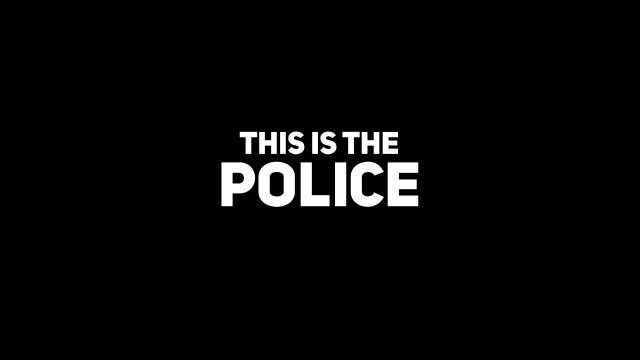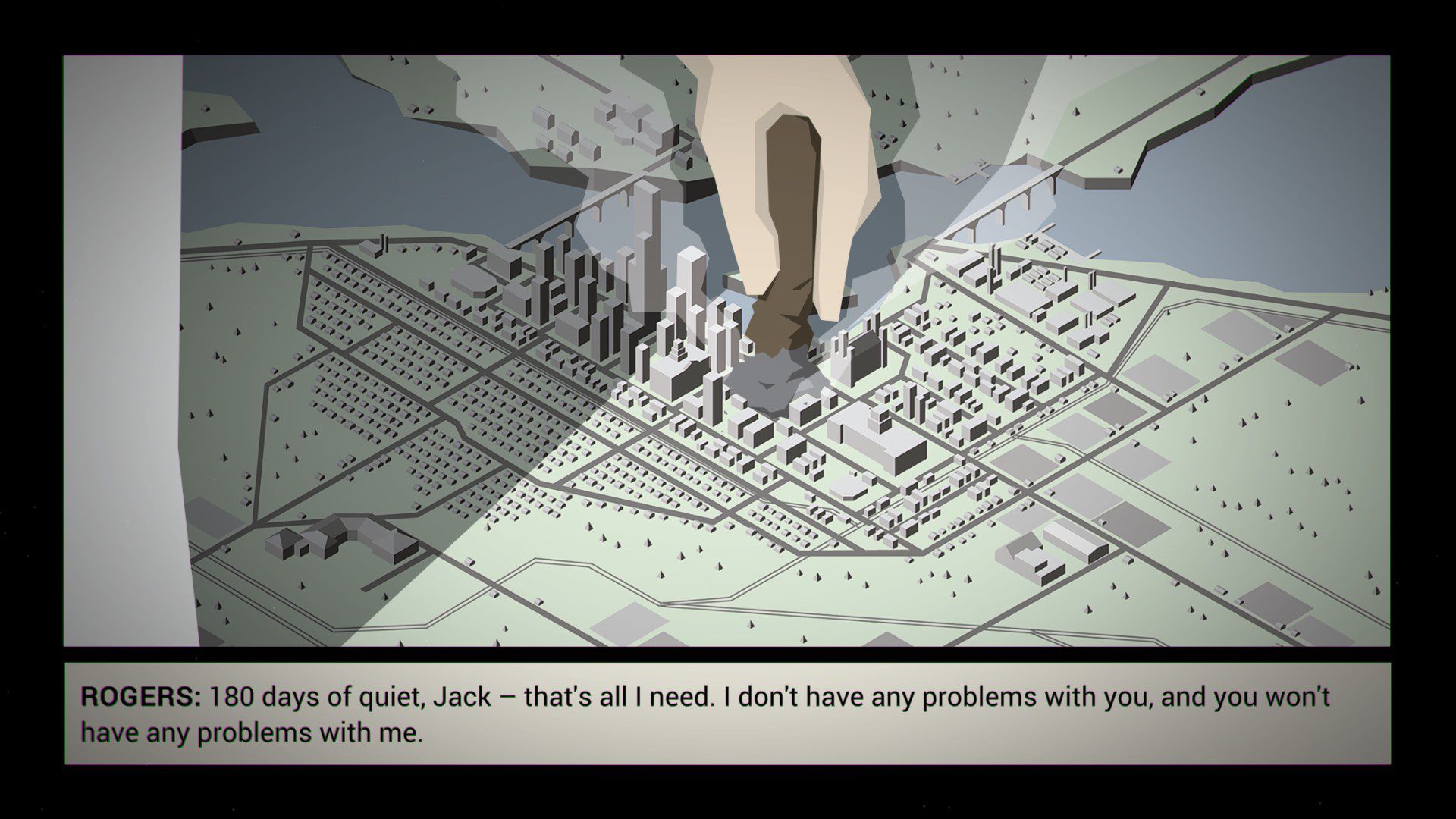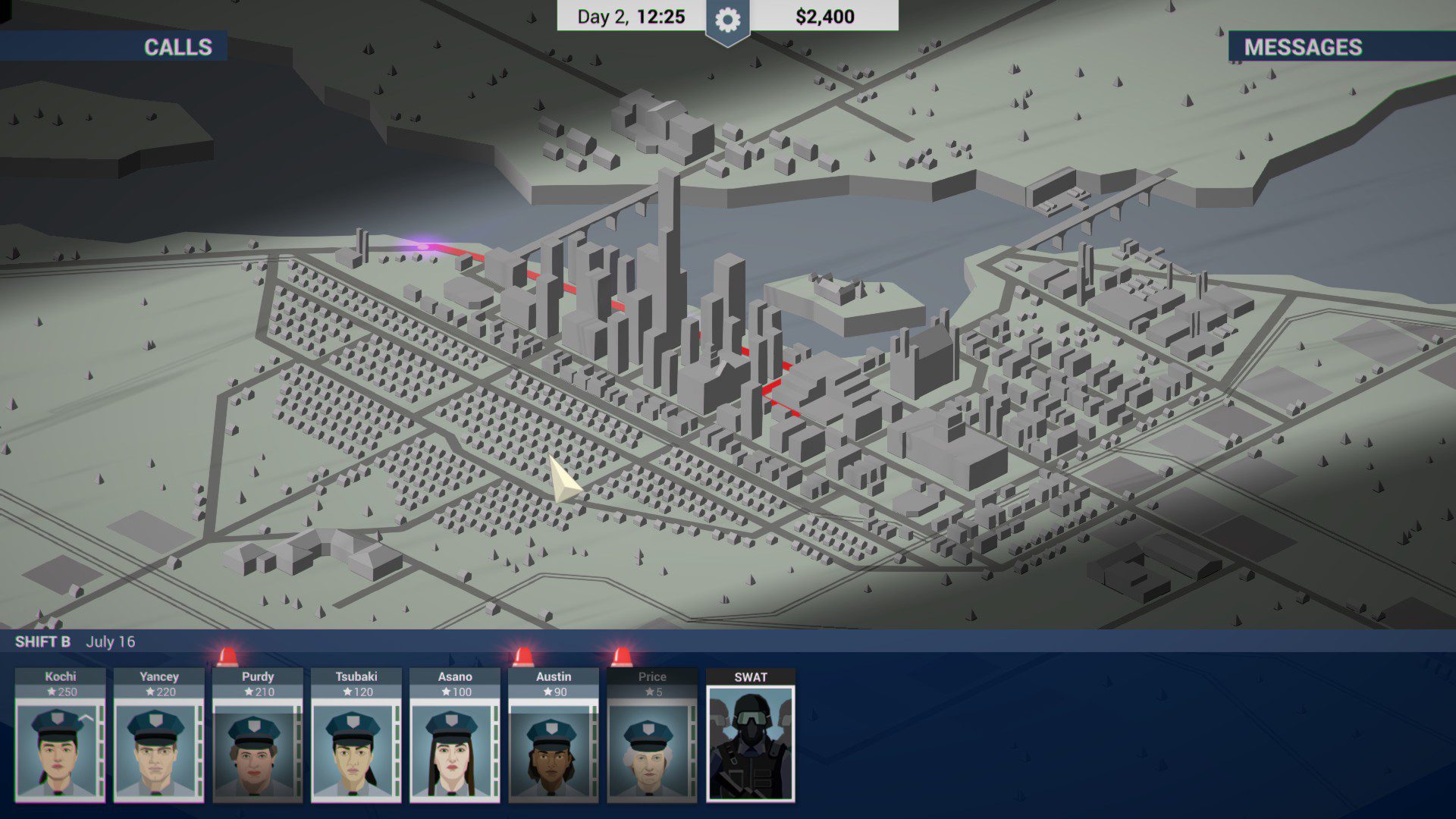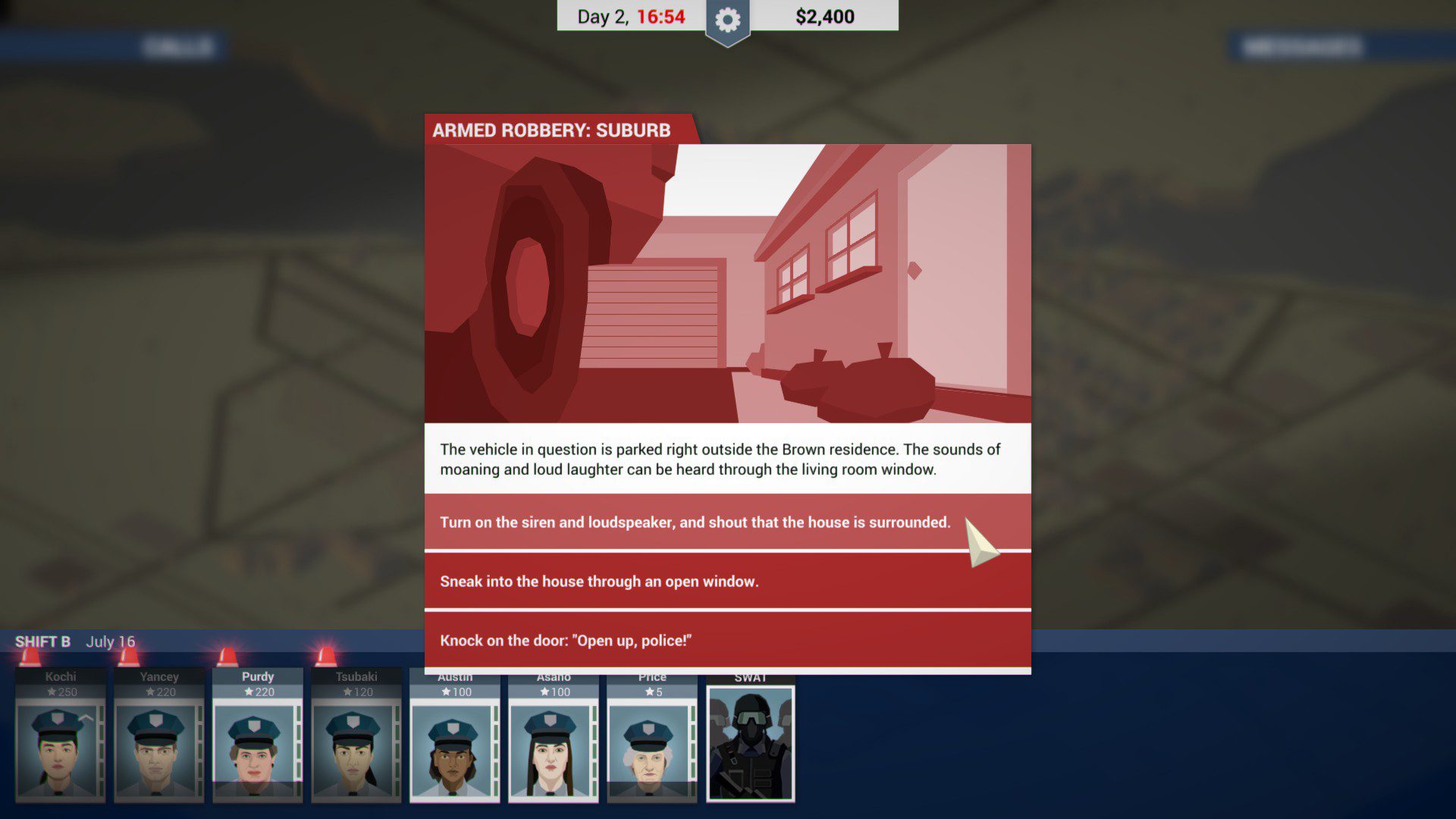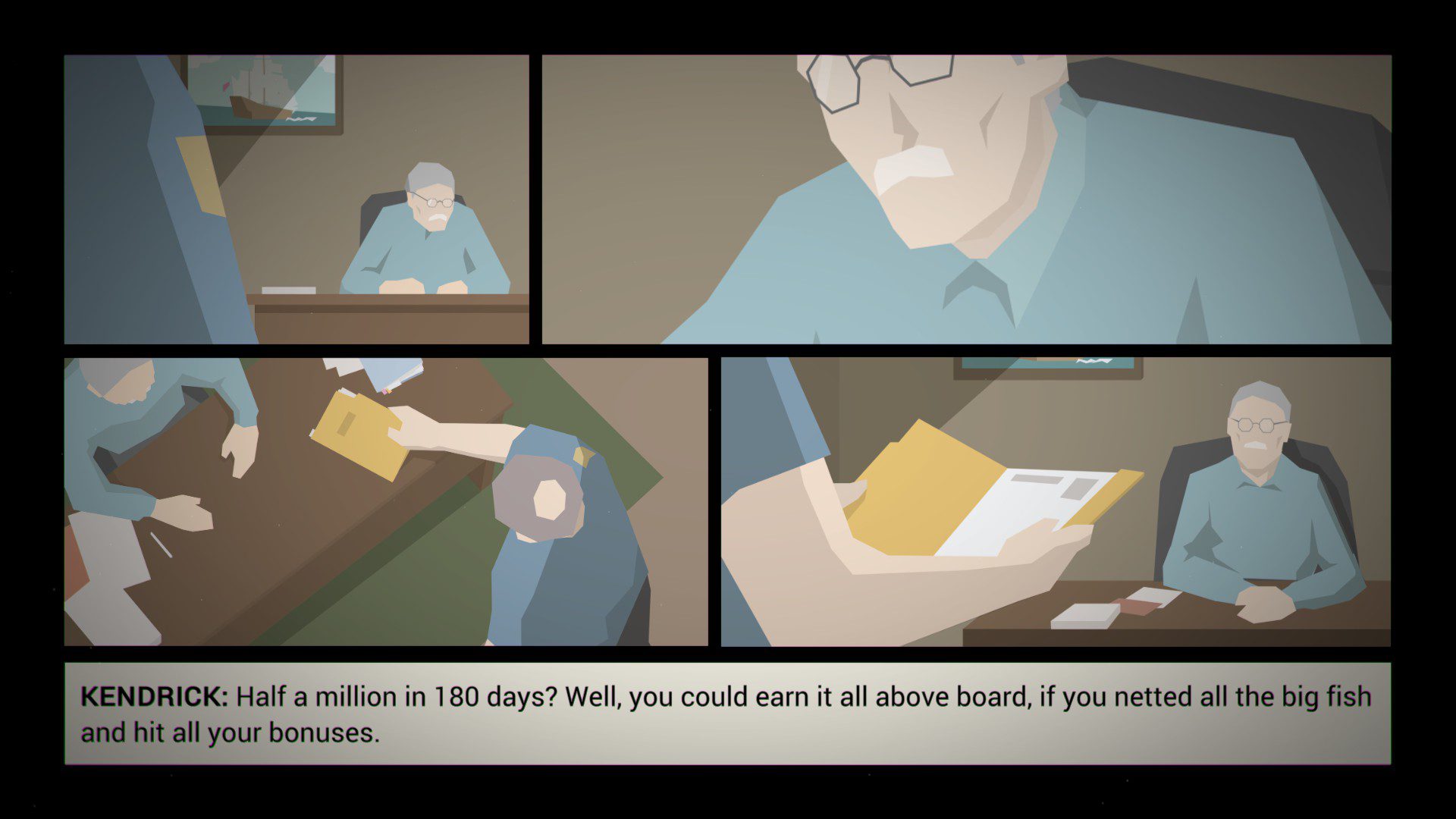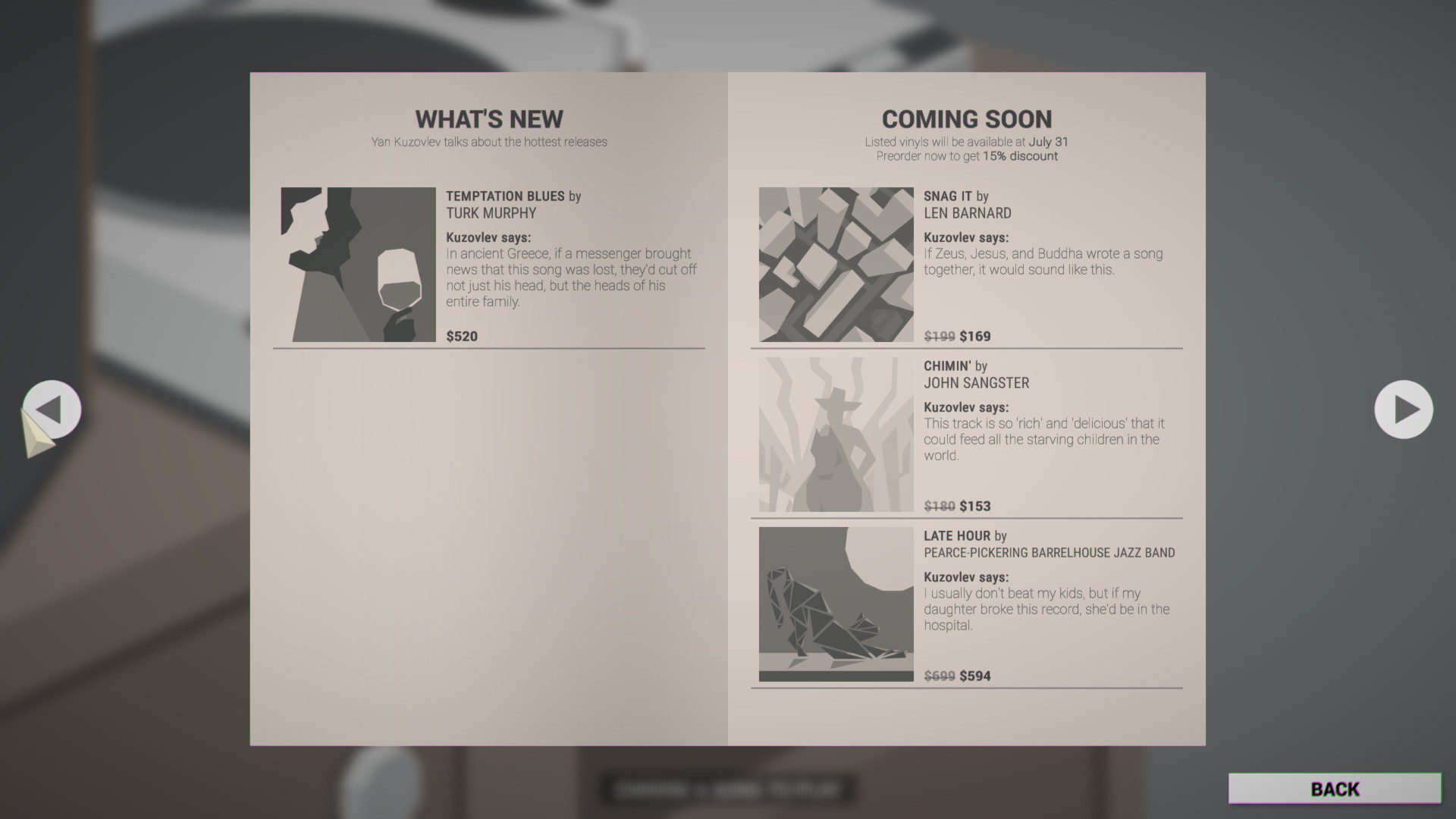This Is the Police is a management sim by Weappy and published by Nordic Games and EuroVideo Medien. Which it almost wasn’t. The publisher kind of dropped the ball on that one.
I figure I’ll tackle the elephant in the room first. This game isn’t a political statement. For some reason, there are people who instantly jump to the conclusion that everything is a political statement. I think I speak for the rest of the non-lunatics when I say that I hope you politicize yourself off the end of a pier some day; then the rest of us will be able to enjoy things without your constant shrieking. It is literally that “person struggles with morality in the face of their oblivion” story that comes around every so often. As a matter of fact, it’s set in the 80’s; a fact that I didn’t realize until I’d played through several in-game days. And since it’s a story of corruption, set in a decade known for decadence, excess, and yes, corruption, it’s fairly appropriate. The closest you come to anything actually political is based around you technically being the last respectable, relatively uncorrupted official in relation to your forced retirement (specifically, you’ll have to decide on whether or not to sell out or give in to pressure from City Hall over certain issues). A mob boss or the Mayor will want something done, and they’ll make your life hell if you don’t do it. I’m the sort to assume that something is shaped like itself unless told otherwise, and the developer has said it’s not some snide comment on the current American political climate. So I’m inclined to believe them.
You take the role of Jack Boyd, the chief of police in the City of Freeburg. He’s being forced into retirement in 180 days and he doesn’t have a retirement fund set up, his wife left him to fool around with a younger man, and his car has a bad starter. The biggest draw to the story is Jack’s constant, Film Noire styled inner monologue; it is present in every story scene. It helps him paint Freeburg as the dirty, 80’s metropolis it is, as well as giving a peek into his innermost thoughts. He has a lot hanging over his head, too; the Mayor is a dick, and he also has to play ball with the mafia now thanks to his former deputy, as the family chandelier lead Jack to understand after I decided to try and keep a moral high ground. Because of this, the story is mostly linear, though there are a few choices you can make that change things a little bit.
The bulk of the actual gameplay revolves around managing your police force. You can hire and fire cops both legally and illegally, and deal with their excuses to not come in to work. News flash, the novel your reading is not a good excuse to not come in to work; it is the “the dog ate my homework” of not-working excuses. You choose which officers respond to a given call, and it’s important to choose wisely. Every officer has a professionalism level, and the higher it is, the more likely they are to succeed at a given task. Not to mention that they become unavailable while they’re out dealing with a crime; sending one of your best after something obviously stupid is a waste. I found it best to pair officers up like in real life; it increases the chances of success without sending too many off to a crime. That being said, any time there’s a weapon involved, it’s usually best to send more officers. In essence, managing your force well insures that you do (and in some cases, don’t do) the things you’re supposed to. You can also petition City Hall for things like larger officer and detective rosters, a raise, or better SWAT team equipment. And since you’re in the mafia’s pocket whether you like it or not, you can also use those connections to deal with problems… for a price. Make the wrong enemies, though, and you might not make it to retirement.
Occasionally, your officers don’t know how to proceed. The game tells you that your choices aren’t worth sweating it out, but your choices do determine whether you catch the criminal, or whether a civilian or officer dies. You also have to manage detective investigations. Since they take more time in game, it was difficult for me to get a hang on the more nebulous mechanics, but you eventually have everything necessary to solve a case. The one downside: save scumming being a thing in the game. I had a difficult time not resetting every time an officer died or failed to collar a criminal and lost some professionalism.
Graphically, the game brings a flat aesthetic to the table. Characters don’t have outlines, just a degree of shading. Aside from your officer’s profile pictures, details like facial features aren’t depicted. It pops well, since they’re careful to avoid letting characters bleed into the background.
The soundtrack is excellent. Not only do the original compositions do an excellent job of molding the feeling of the game, the mixture of real world Jazz and Classical songs you can choose at will during the sim portion of the game are excellent. As a matter of fact, some of them are next to impossible to find outside of the game itself; of the initial six songs available to you, I was only able to find one through Google, and one from a different artist. I honestly hope a complete soundtrack is released, as some of these songs might not otherwise see much play. And since you can buy more records in the game, you’d be forgiven for squandering Jack’s retirement fund on colored vinyl. It’s also worth noting that Jon St. John turns in a excellent performance as Jack; while other performances vary, his gravelly, laid-back detective voice remains pleasant throughout.
This Is the Police is an excellent game, especially considering it’s the Belarus-based developer’s first. While a few things, like not knowing information to which Jack is privy (especially in the beginning) are annoying, they’re not really enough to hold the game itself back. More information and feedback from your officers would also be nice, but that’s also not enough to kill the vibe they have going. I feel confident giving it my recommendation.

